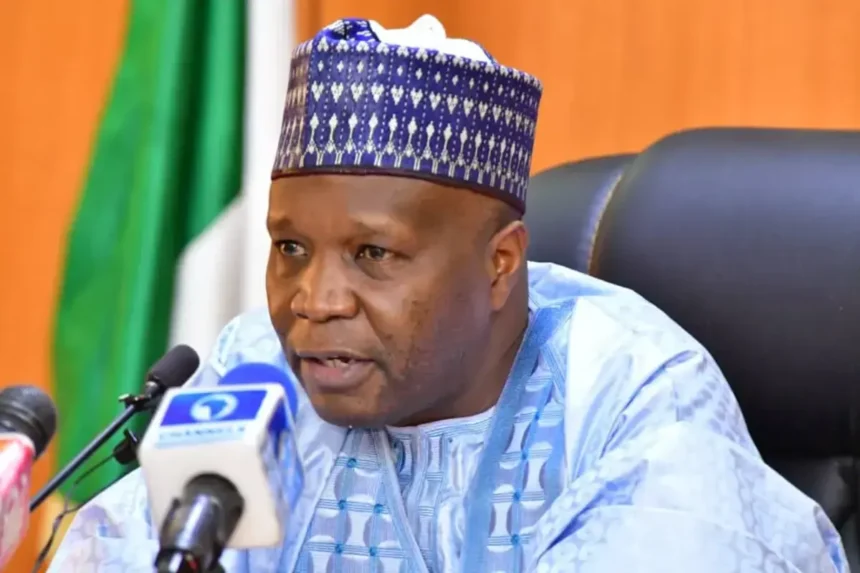Gombe Governor, Inuwa Yahaya, has observed that Nigeria is making progress in its fight against polio, expressing concerns however that the country still faces challenges from a vaccine-derived variant, particularly in the Northwest region.
Briefing State House correspondents after Thursday’s meeting of the National Economic Council (NEC), presided over by Vice President Kashim Shettima, Yahaya said recent interventions were already producing results.
He recalled that the National Committee on Polio Eradication, inaugurated in December 2023, has since held multiple sessions to review progress and fine-tune strategies.
ALSO READ: Minister Bosun Tijani, Elon Musk, others make 2025 Time100 AI list
He revealed that while Nigeria was declared free of wild poliovirus in 2020, the fight has shifted to containing a circulating variant, concentrated mainly in Kano, Katsina, Kebbi, Sokoto and Zamfara states.
“As of the 33rd epidemiological week in 2024, Nigeria recorded 78 cases. That figure has now dropped to 42, showing a clear downward trend,” Yahaya said.
According to him, Kano and Katsina recorded remarkable reductions of 65 per cent and 84 per cent respectively, while Gombe has maintained a clean slate this year. Sokoto, however, remains the epicentre, accounting for 13 of the 23 cases reported nationwide so far in 2025.
The governor outlined improvements in surveillance and vaccination. Settlements tracked with geo-coordinate data increased from 71 per cent in April to 78 per cent in June, while vaccination coverage rose from 81 to 84 per cent within the same period.
“The first round of in-between activities across 11 high-risk states reached 77 per cent of targeted settlements, with about 2.7 million children vaccinated, representing 83 per cent coverage,” he disclosed.
Beyond vaccination, integrated health services were offered, including nutritional supplements for pregnant women, malaria prevention kits, and other maternal-child health interventions, an approach Yahaya said was designed to boost community acceptance.
Looking ahead, he announced that the second round of immunization will run from September 11 to 14 across 11 high-risk states, while a broader integrated nationwide campaign will follow in October.
That campaign, targeting children aged 0-14 years, will deliver measles, rubella, polio, and malaria vaccines, alongside treatments for neglected tropical diseases, in a two-phase rollout to maximize coverage.
To ensure effective delivery, the committee urged state deputy governors to personally chair task force meetings at least two weeks before each campaign round, particularly in Kano, Kebbi, and Sokoto.
Commissioners for Health and heads of primary healthcare agencies are to lead post-campaign reviews and mop-up exercises, while local government chairmen will be tasked with grassroots mobilization.
Yahaya further appealed to security agencies to safeguard health workers in conflict-prone areas, stressing that vaccination teams often face risks in hard-to-reach or volatile communities.
He also underscored the need for timely funding, revealing that the committee has called on the Accountant General of the Federation to expedite disbursements for primary healthcare.
“Eradicating polio remains a national priority,” Yahaya declared. “With sustained commitment, adequate resources, and strong security backing, we can rid Nigeria of this disease once and for all.”
On cross-border risks, he cautioned that porous northern frontiers remain a weak link.
“Nigeria was declared wild polio-free in 2020, but what we are fighting now is a variant that spreads easily across borders,” he explained.
“Communities along the Niger and Chad borders remain vulnerable. That is why we are intensifying vaccination coverage to ensure that no variant, whether homegrown or imported, gains ground again.”
WATCH TOP VIDEOS FROM NIGERIAN TRIBUNE TV
- Let’s Talk About SELF-AWARENESS
- Is Your Confidence Mistaken for Pride? Let’s talk about it
- Is Etiquette About Perfection…Or Just Not Being Rude?
- Top Psychologist Reveal 3 Signs You’re Struggling With Imposter Syndrome
- Do You Pick Up Work-Related Calls at Midnight or Never? Let’s Talk About Boundaries







